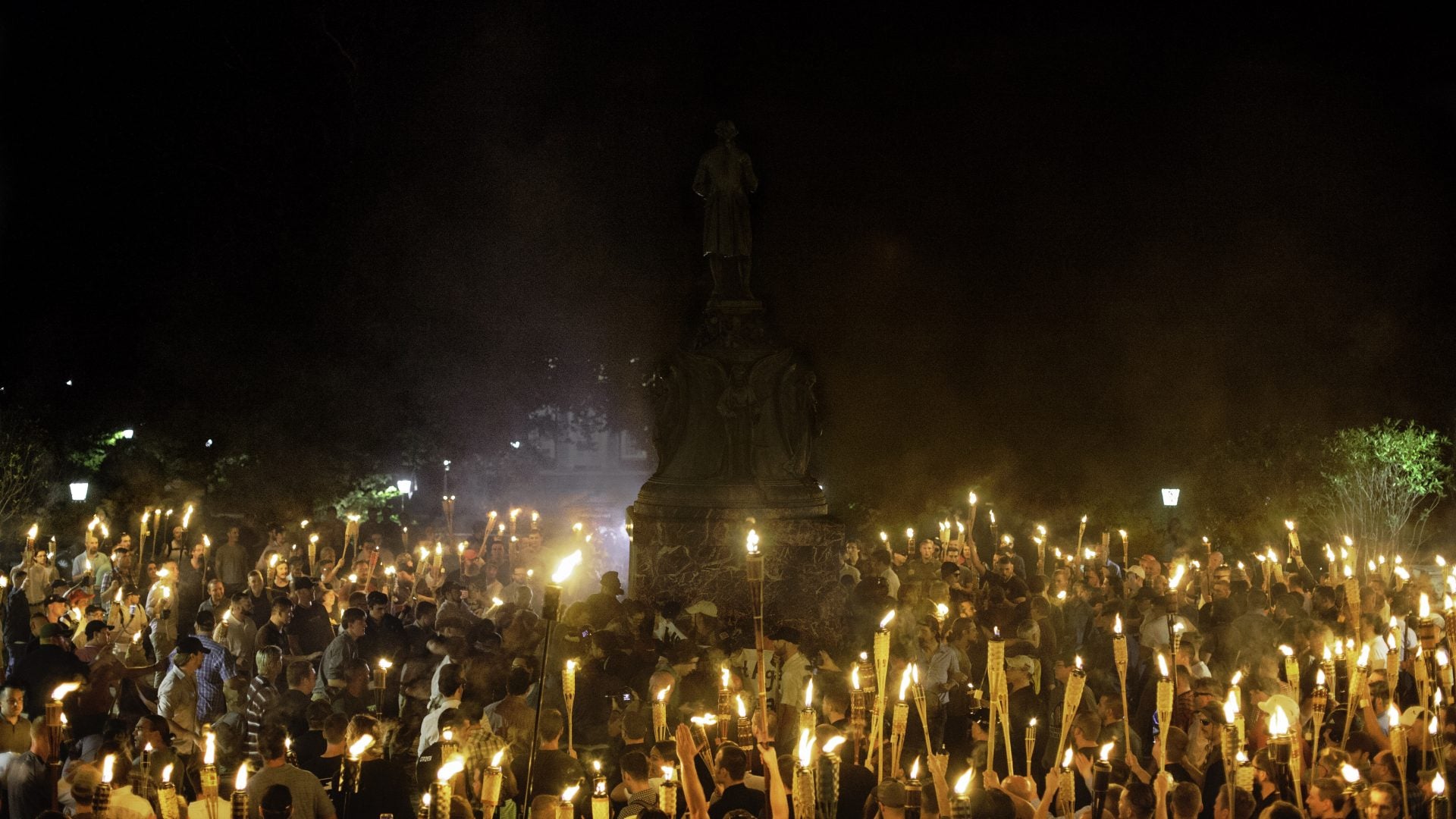
In a new strategy report from the Department of Homeland Security, the agency is plainly stating that domestic terrorism — especially that of white supremacists— is as great a threat to the United States as organizations like ISIS and al-Qaeda.
While the department maintains that terrorist organizations continue to plot attacks on our soil, it says there is a growing threat from “domestic actors” who are being incited by extremist ideologies.
“In our modern age, the continuation of racially based violent extremism, particularly violent white supremacy, is an abhorrent affront to the nation,” acting homeland security secretary Kevin McAleenan said in a speech Friday attended by The Washington Post. He added that the trend “has no place in the United States of America, and it never will.”
The report, which centered on the work done and advancements made since 9/11, made a point to break down the differences between terrorism and targeted violence. The latter of which refers to incidents that involve DHS, where a known attacker selects a specific target prior to an attack. In the U.S., these kinds of attacks tend to have a significant impact on “communities, schools, places of worship, and other public gatherings,” the document states.
In order to address these concerns, DHS in their Strategic Framework report, says they have continued to focus on foreign terrorists while also recognizing and tackling the growing severity of domestic threats.
According to the report, “Hate crimes and non-ideologically motivated large-scale or disproportionately lethal acts of mass violence, including mass attacks, round out the picture of terrorism and targeted violence afflicting the Homeland.”
Notable figures on Capitol Hill have said that the acknowledgment of a white supremacist threat is a significant step forward. The recognition should help with a prevention strategy that calls on federal, state and local agencies to work closely together to reduce the number of radicalized individuals.
“This strategic framework is our formal recognition of the emerging threat of targeted violence in the United States,” McAleenan said, before calling it “a vision for how our nation will respond to the evolving threats we face.”